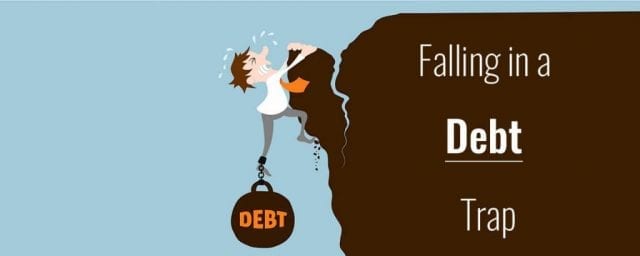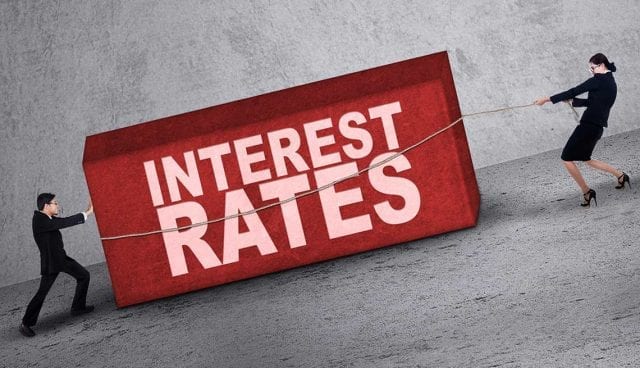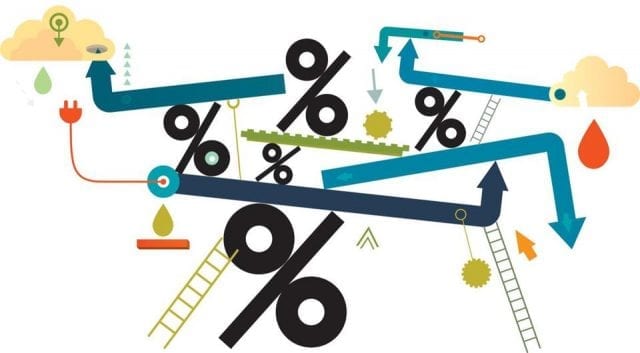
Any loan will carry a specific rate of interest which typically is the factor that will determine the end result, whether you will be able to repay your loan successfully or end up in a debt hole. The rate of interest will typically determine the amount that you have to repay your creditor every month.
No matter how many times you have come across the term “interest rate” but you will for sure not know what it means in real terms, how it is calculated and what effect it may have in your finance. Well, this article will help you with it.
Typically, interest is the income of the creditors that they earn while lending you a sum of money. This is what keeps their money lending business running. In broader terms, charging interest on loan or “usury” as it was called in the olden days is the additional payment you make in gratitude towards the creditor for risking their hard earned money on you, a stranger to them. That means interest is ideally the money you pay for the opportunity of borrowing.
The mathematical aspect
Mathematically, interest can be charged in two specific ways such as:

- Simple interest: Here a fixed rate of interest is charged on the principal amount for the entire loan period. For example, if you take out a loan of $1,000 from a bank or any other financial institution that charges a 6% annual interest rate, you will have to pay an extra $60 apart from the $1,000 you borrowed at the end of 12 months. If you pay it after say two years, you will pay an additional $120 for the same $1,000.
- Compound interest: Ideally most loans are offered at a compound rate of interest. In this method, a fixed rate of interest is charged on the principal amount as well as the principal and the accumulated interest amount over the years. In this process, you may much more than a simple rate of interest. For the same example above, after one year you repay $1060 to the creditor but if you repay after two years will an additional amount as interest on $1,000 for the first year added with the interest at the same 6% on $1060 for the second year which is $63.60. That means you pay a total of $123.60 as interest. See why banks rely on compound interest.
The rate and amount at which the debt grows will largely depend on the tenure of the loan or comes due or how often the loan “compounds.” As for credit cards, it is archetypally once in a month.
The rate of interest determined on your debt can be of two types as well:
A fixed rate of interest, which also known as a flat rate of interest, will not alter your monthly installments throughout the loan tenure. If it is calculated by the bank as $3,000 each month, it will remain the same throughout for even a 15-year loan.

On the other hand, a variable rate of interest, which is also known as a floating rate of interest, will change your monthly installments as per the prevailing market conditions, decisions of the bank and most importantly as per the CRR or Cash Reserve Ratio or simply the reserve requirement imposed by the central bank.
Therefore, the bottom line is whenever you choose debt consolidation or even any other debt relief, shop around and research well to find the lowest interest rate possible. You can visit different reliable sources such as https://www.nationaldebtreliefprograms.com/ and others for that matter.
Interest rates for different consolidations
Different types of debt consolidation will have different types of interests as well.
- When you shop around you will come across low or 0% interest rate credit cards for loan consolidation. This may sound too good to be true but it surely is, provided you have a proper plan to follow to make it to your advantage. The existing credit card balances are transferred to a new card offered generally with introductory offers. There is a time limit for such offers usually ranging from 12 to 18 months and if you do not repay the loan in full within this time your loan amount will change dramatically, if not drastically, due to the ridiculously high rate of interest. Also, take care of the fees charged and your credit scores that may come into play when you apply for a 0% credit card.
- You can also apply for a Home Equity Loans or Lines of Credit which is basically a second mortgage. In this, however, you have to put your house in the line as collateral to secure the loan or a line of credit. Interest rates are usually low ranging between 3% and 8% in this type of debt consolidation with a risk of foreclosure in case of default.

- There are also specific rates of interest charged on 401(k) loan if you want to borrow from such plan to take care of your financial emergencies. About 75% of people do this without knowing the consequences. The repayment is however made in parts from your weekly paycheck. According to the law, you can borrow up to 50% of the total in your account or $50,000, whichever is less. However, there is no loss in such borrowings because the interest that you pay adds on to your own account only which is typically based on the Prime Rate plus 1 or 2%.
- You can take payday loans as well but should be ready to pay an incredibly high rate of interest even going more than 300% for it. It is therefore not suitable for consolidating very high-interest loans. This will make the financial situation even worse. It is more like visiting a diet clinic and coming out with a bagful of doughnuts. You have to pay it up plus the finance charges through a post-dated in your next payday.
Therefore, it is important that you understand the interest rates and its variances, calculation, and consequences when you deal with your debts.








